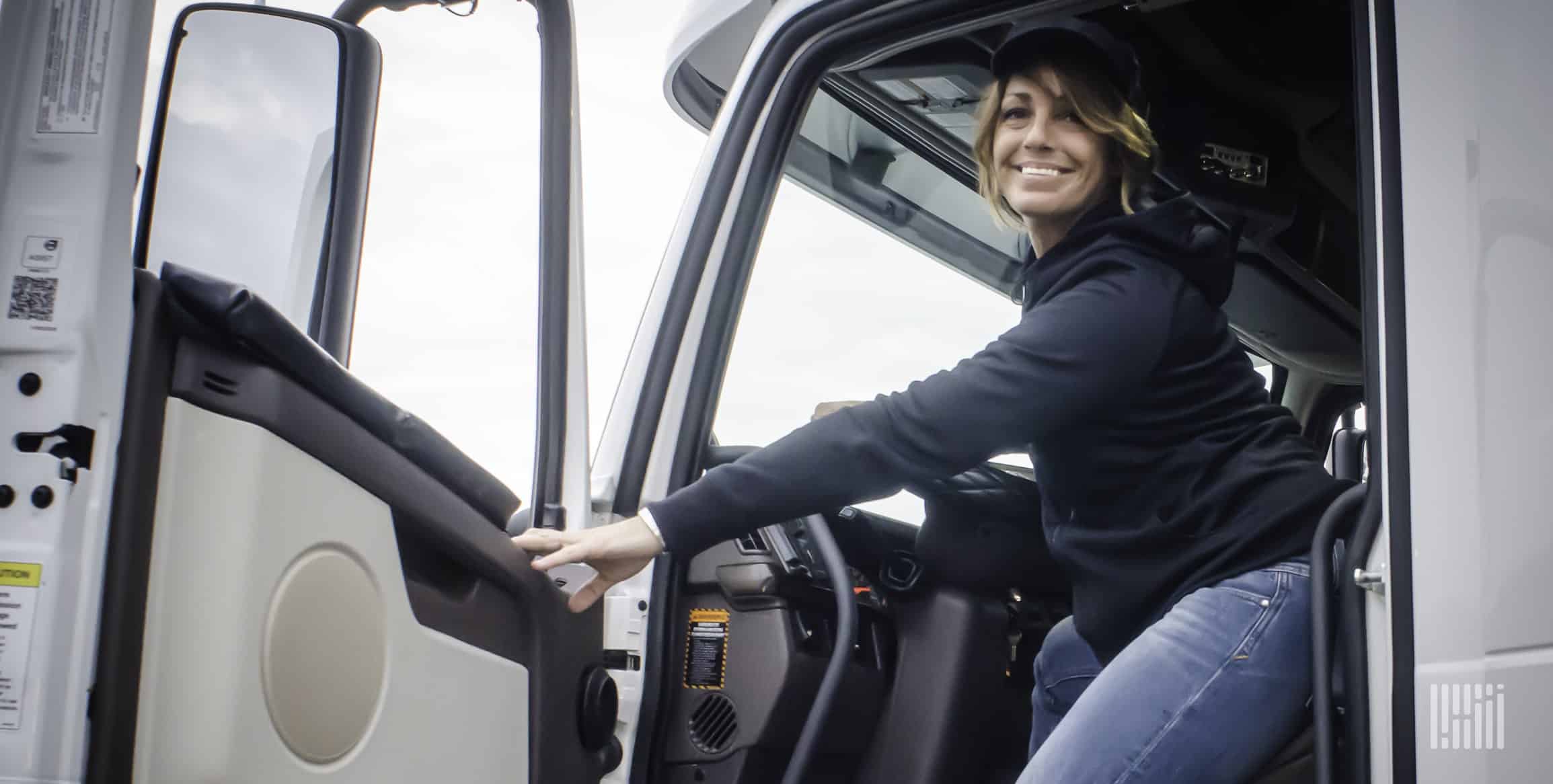Are you looking to take your career to the next level? Have you considered becoming an owner-operator in the trucking industry?
As an owner-operator trucker, you have the opportunity to be your own boss, set your own schedule, and potentially earn more money. But it’s not an easy road to success. That’s why we’ve put together this article on how to become a successful trucking owner-operator.
And when you’re finished reading, check out the other articles in our ‘How to become an owner-operator’ series:
- How to become an owner-operator truck driver
- How to finance a trucking business
- How to find customers and loads for owner-operators
- Managing your owner-operator business finances
What is an owner-operator?
Before you become an owner-operator truck driver, you have to understand exactly what they do. An owner-operator driver is a self-employed business owner who operates their own commercial vehicle(s) to provide transportation services for customers.
Owner-operator drivers are responsible for the maintenance, insurance and operation of their vehicles, and for securing their own clients and business opportunities. They may work independently or contract with larger transportation companies to provide services on their behalf.
Owner-operator pros and cons
Pros
- One of the most significant advantages of being an owner-operator is complete control of your business. As an independent trucker, you can choose the owner-operator loads you want to haul, routes you want to take, and customers that you want to work with.
- Unlike company drivers, owner-operators have the freedom to set their schedules and work as much or as little as they want.
- Independent drivers have the potential to earn more money than company truckers. Since they aren’t restricted by company pay scales, they can negotiate their own rates and keep all profits from owner-operator jobs.
- When you drive for yourself, you are entitled to certain owner-operator tax deductions that company drivers can’t claim, like business expenses.
Cons:
- Owner-operators are responsible for all of their expenses, including truck payments, insurance, fuel, maintenance costs, permits, and taxes.
- More control and freedom translates to greater responsibility. Truck owner-operators are responsible for finding their own loads, ensuring that their equipment is in good condition, and meeting all regulatory requirements.
- More time must be spent on managing the business. Tasks include finding loads, negotiating rates, and handling paperwork, which can take away from time spent driving.
- Unlike company drivers, owner-operators don’t have the stability of a regular paycheck. They may experience fluctuations in income based on the loads they haul and rates they negotiate.
8 steps to become an owner-operator truck driver
Starting an owner-operator trucking business requires careful planning and research. Here are eight steps to get started.
- Develop a business plan: Determine what kind of operation you want to run, and make sure you understand the market demand for your prospective service offering. Taking into account anticipated expenses and an honest assessment of potential earnings, put together a five-year financial forecast and plan.
- Obtain necessary licenses and permits: To operate a trucking business, you will need to obtain a Commercial Driver’s License, Motor Carrier Authority (MC) number, and Department of Transportation (USDOT) number. You will also need to obtain permits and licenses from state agencies.
- Choose the right equipment: Your truck is a crucial part of your business. Decide what kind of truck you need based on the type of owner-operator freight you plan to haul. Shop around and compare prices of truck owner financing.
- Secure a source of financing: Financing a trucking business can be expensive. Consider whether leasing is a better option than getting truck financing. Take into account that independent owner-operator trucking medical insurance fees, CDL costs, motor carrier number fees and other monthly expenses may affect your ability to repay owner-operator startup loans.
- Develop a marketing plan: Identify your target market, and develop a marketing strategy to reach potential customers. Consider creating a website, using social media, and attending local trade shows.
- Purchase insurance: To operate legally as an owner-operator, you need to carry owner-operator trucking insurance. Commercial trucking owner-operator insurance can be expensive, so shop around on trucking websites for the best price.
- Hire and train a team: As an owner-operator, you may need to hire and train other drivers, have a dispatch team, or contract out some of your back-office tasks.
- Develop operational procedures: Develop standard operating procedures to ensure that your business runs smoothly.
Starting an owner-operator trucking company takes time, effort, and a lot of hard work. With careful planning and execution, you can build a successful owner-operator trucking business.
Tips for operating a successful truck driving business
Once you become an owner-operator, the following tips will help you build and maintain a successful trucking company.
Manage your finances wisely
As an owner-operator, you will be responsible for managing your financial affairs. It is important to set a budget, keep track of your expenses, and create financial projections.
Build a strong network
Your success in the freight industry will depend on building relationships, including with freight brokers, direct shippers and other transport carriers. They will help you to secure owner-operator truck driver jobs.
Keep your truck in top condition
Your truck is your most significant asset, so you must maintain it regularly. This includes oil changes, tire rotations, repairs and upgrades.
Always plan your routes
Your owner-operator startup checklist should cover planning routes carefully. Mapping routes in advance will save you time, energy and money. Make use of advanced scheduling software to determine the best route and delivery times.
Stay connected with customers
Owner-operator companies need to keep in contact with their customers, be responsive to their needs, and provide excellent customer service.
Stay up-to-date on regulations
The trucking industry is highly regulated and requirements vary between states. Stay current with regulations to avoid running afoul of the law.
Your rewarding truck driving career awaits
Although all the steps involved may seem intimidating, becoming an owner-operator could turn out to be the best career decision you make. By following the steps and advice outlined above, you could be on the road to owning a successful startup trucking business in no time.
FAQ
Whether it’s worth it largely depends on personal preference, financial goals, and business acumen. It offers independence, potential for higher earnings, and flexibility, but also involves risks, financial investment, and responsibilities like managing business operations and maintenance.
You become an owner-operator when you own and operate your own trucking business, meaning you own or lease a truck and take responsibility for securing freight, maintaining the vehicle, and managing all business aspects.
Owner-operators do not necessarily need to own their own trailer. They can either lease a trailer, haul company trailers, or focus on power-only loads. However, owning a trailer can provide more flexibility and potentially higher earnings.
Sign up for a FreightWaves e-newsletter to stay informed of all news and trends impacting supply chain careers and operations.



